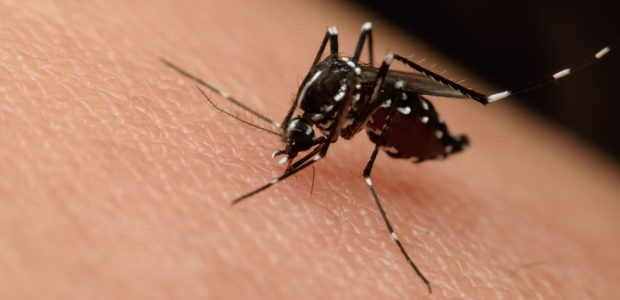
Federal Experts Update HELP Committee on Zika Threat
A trio of experts testified at a Feb. 24 hearing about their agencies' work to develop a vaccine and educate the public about the virus.
Three experts from key federal agencies involved in preparedness for U.S. outbreaks of the Zika virus told members of the U.S. Senate Health, Education Labor & Pensions Committee Feb. 24 that the virus is a serious threat for which health departments nationwide should be preparing. The HELP hearing included testimony by Dr. Anne Schuchat, M.D., CDC's deputy principal director; Dr. Anthony S. Fauci, M.D., director of NIH's National Institute of Allergy and Infectious Diseases (NIAID); and Dr. Robin A. Robinson, Ph.D., deputy assistant secretary and BARDA director in HHS' Office of the Assistant Secretary for Preparedness and Response.
Schuchat said CDC already has made significant progress in identifying the virus in brain tissue of affected deceased infants and in developing new diagnostic tests and improving monitoring and surveillance, but she added that much about the virus remains unknown. Increasing evidence strongly suggests a link to microcephaly, she said, but the nature of this relationship and what other outcomes may be associated with Zika infection during pregnancy are not fully understood.
"While we have not yet seen transmission of the Zika virus by mosquitos within the continental United States, we expect many returning travelers will have Zika infection. As a potential benchmark," Schuchat said, according to the text of her remarks posted by the committee, "we received reports of 3,270 travelers from 49 states with laboratory confirmed cases of chikungunya infection in 2014 and 2015. There are about 40 million people traveling between the continental U.S. and Zika-affected areas each year. Therefore, all U.S. jurisdictions must be prepared to evaluate, test, and manage patients with potential Zika virus infection."
Fauci said NIAID is investigating several Zika vaccine candidates, including vaccines based on technologies that have shown promise in targeting other flaviviruses. He said the NIAID Vaccine Research Center is pursuing a DNA-based vaccine for Zika that is similar to a West Nile vaccine the agency previously developed.
Robinson said his agency is "particularly concerned about the virus becoming endemic" in Puerto Rico, the U.S. Virgin Islands, and American Samoa, as well as the potential for local outbreaks in parts of the southern United States. Brazil's Ministry of Health estimates between 440,000 and 1.3 million suspected cases of Zika occurred in that country during 2015, he said.
U.S. Sen. Patty Murray, D-Wash., ranking member of the committee, said she and many of her colleagues "are hearing from families in our home states who are deeply concerned about the spread of the Zika virus, which can have such tragic consequences—especially for young families. So I'm glad we have the opportunity to speak with experts who are on the front lines of our response efforts and discuss ways Congress can best support this critical work. There is still a lot we need to learn about the virus, but one thing that is clear is that we can't wait to act."
Murray said Congress should approve the Obama administration's request for $1.9 billion in emergency funding to respond to the Zika threat, rather than shift money from already allocated Ebola preparedness funding, as some Republican members of Congress advocate.
The World Health Organization launched a global Strategic Response Framework and Joint Operations Plan earlier this month to guide the world's response to the spread of Zika virus infection, which WHO's director-general, Dr. Margaret Chan, on Feb. 1 declared is a Public Health Emergency of International Concern. This decision was based on advice from the first meeting of the Emergency Committee under the International Health Regulations.